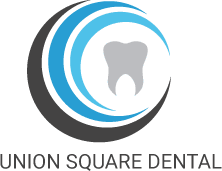The effects of aging on your oral health create new challenges. Healing can take longer, and the gums and bones that support your teeth become thinner and weaker. Add to that a lifetime of daily wear and tear, and it’s easy to see why tooth loss is so pervasive among older patients. Mother nature doesn’t call all the shots, though. There’s a lot you can do to help keep your smile intact.
Dr. Kateryna Grytsenko and Dr. Yuliya Kanatova of Union Square Dental, located in the Flatiron District of Manhattan, New York City, explain steps you can take to preserve your teeth as you age.
Tooth loss is the unfortunate result of a variety of oral health problems. Two of the most common are:
-
Dry mouth
Adults often develop a dry mouth from medications or chronic health conditions such as diabetes. Lack of saliva can cause cavities and gum disease, top causes of tooth loss.
-
Gum disease
Gum disease and gum recession make it easier for bacteria to accumulate and promote gum infection. Simultaneously, gum disease caused by tartar and bacteria leads to receding gums.
No matter which condition comes first, receding gums and gum disease put you at an increased risk for tooth loss.
Preventing these and other dental problems
Here are five tips to help prevent dental problems as you age:
1. Be vigilant about home dental hygiene
Now is no time to get lax about oral hygiene.
Continue brushing twice daily, and flossing at least once per day remains the cornerstone of preventive care. Consider using an electronic toothbrush and water flosser to up your game.
2. Adhere to a healthy diet
Just like your waistline, what you eat impacts your teeth and gums. We recommend a well-balanced diet of lean meat, whole grains, fruits, vegetables, beans, and low-fat dairy products.
Foods to avoid include sweets, sugar-sweetened beverages, and acidic products.
3. Address dry mouth
Drinking water throughout the day and using over-the-counter rinses or moisturizers relieve dry mouth. We can also suggest products that improve dry mouth and offer additional protection against tooth decay.
If your dry mouth is severe, your physician may need to adjust the medications you take or prescribe medications that boost saliva production.
4. Manage diabetes
If you have diabetes, keeping your blood sugar within the healthy range is crucial for your physical and dental health. High blood sugar dramatically increases your risk of tooth decay and advanced gum disease (periodontitis).
5. Get routine dental check-ups.
Regular dental check-ups are always essential. Visiting us every six months is the best investment you can make in keeping your teeth healthy.
Professional teeth cleaning removes plaque and tartar that cause gum disease. In some cases, special fluoride rinses or treatments may be recommended for further protection.
Dental checkups allow us to find and treat cavities, cracked teeth, and receding gums at an early stage. Without early treatment, cavities and cracks enable bacteria to enter your teeth, leading to inflammation that causes gum disease and erodes the bones supporting your teeth.
Schedule your bi-annual cleaning and check-up is the best step to ensure aging doesn’t catch up with your teeth. If you suffer from dental anxiety, we can put you at ease. We offer sedation options. Just call us at Union Square Dental today.
